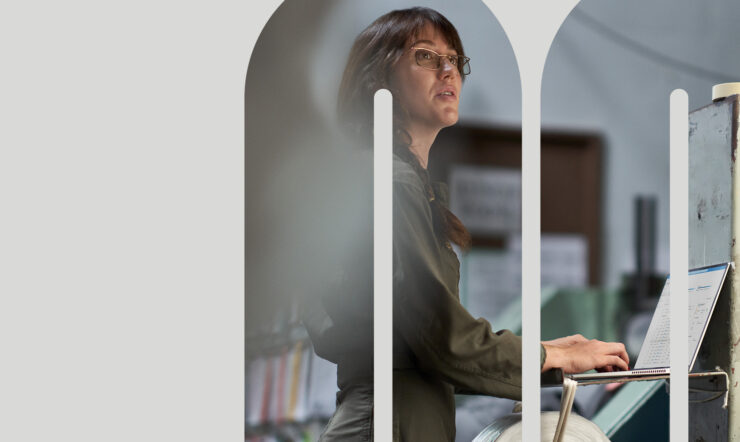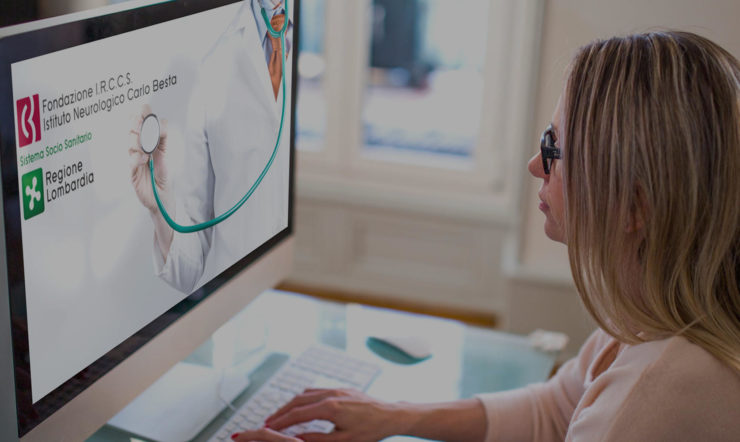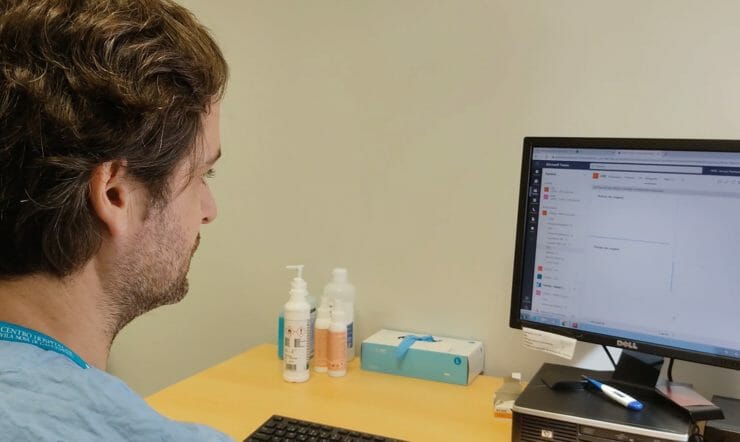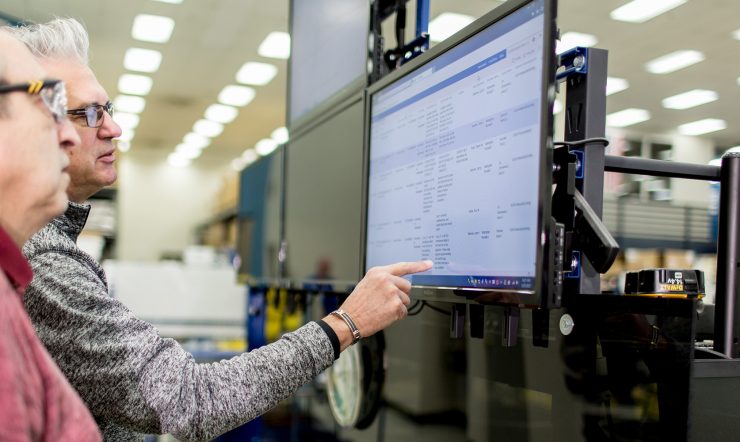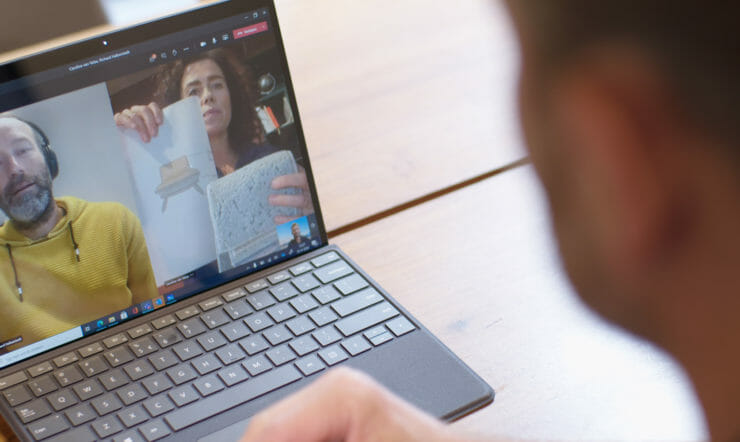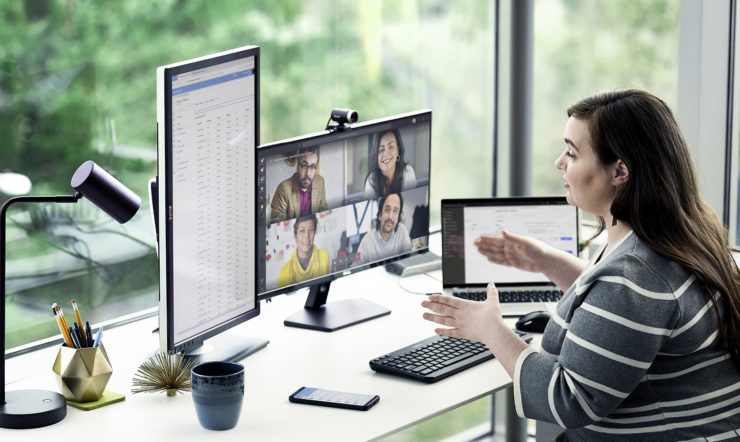My phone had scarcely stopped ringing for weeks. Now it was ringing again.
“Veronica,” said the voice at the other end, “we have an idea!”
Immediately, I recognized who it was. I’ve known Carlo Tacchetti for almost as long as I’ve been at Microsoft. He’s a professor at the Vita-Salute San Raffaele University and the Director of the Experimental Imaging Center at IRCCS San Raffaele – one of the most important hospitals in Milan.
This was the spring of 2020, when Covid-19 was tightening its grip on Italy. Neither I nor anyone else on my team had time to eat lunch or do anything except work. While our inboxes were creaking under the weight of incoming emails.
At that time, clinicians were finding it difficult to identify the most vulnerable patients among those with milder coronavirus symptoms. So, they had no choice but to keep everybody in hospital – which meant they swiftly ran out of ICU beds.
Carlo explained that he and his colleague Antonio Esposito, another professor at the Vita-Salute San Raffaele University and the Deputy Director of the Experimental Imaging Center, had thought of a way to tackle this problem. Their idea was to use Microsoft cloud and AI technology to create an algorithm which could calculate each patient’s risk level. It would analyze diagnostic images, clinical and laboratory parameters, inflammatory status and genetic profiles. Then, in theory, the algorithm would be able to quickly predict whether a patient would need to be sent to ICU or allowed to recover at home.
“Will you help us?” asked Carlo.
Of course we would. As soon as I’d put the phone down, I contacted two colleagues, and together we began trying to make it happen. And the result is AI-SCoRE – a collaboration between IRCCS San Raffaele and Microsoft, plus the team of partners we assembled, including NVIDIA, Porini and Orobix, aiming to help doctors quickly and precisely identify people more at-risk from Covid-19 – and with total respect for patient privacy.
Now Carlo, who has an oncology background, and I are thinking about how we can take it further. We’d like to create similar algorithms to help treat cancer patients. Especially when it comes to pinpointing those likely to relapse – so he can be extra vigilant with them and take preventative measures.
Trust comes from having a shared purpose
I think part of the reason Carlo picked up the phone and called me is the fact we share a sense of purpose. Digital transformation in healthcare is more than just a professional interest for me and my team. Just like Carlo, we believe it’s a fundamental right for all citizens to have access to equitable healthcare. And a huge part of that comes down to improving its quality – making it more effective, efficient and sustainable with digital technology, while always placing patient confidentiality and data protection at the centre.
That outlook certainly isn’t unique to my team. The same goes for our partners and for Microsoft as a whole – with its mission ‘to empower every person and every organization on the planet to achieve more.’ That sense of purpose is the seed from which trust can grow.
With that trust, coupled with the confidence that comes from Microsoft’s security, privacy and compliance capabilities, health organisations can move much faster when necessary. And one example of this springs to mind – it involves Finland’s largest healthcare organization: HUS.
HUS is one of our established customers. Together, we’d been implementing new digital tools for several years, with Microsoft cloud services and Microsoft 365 already in place. As social distancing measures came into force in 2020, both patients and doctors needed to change how they interact. So HUS quickly scaled-up Microsoft Teams from 5,000 users to its entire workforce of 29,000 people.
In a programme that would have required slow and incremental change, HUS was able to shift to virtual consultations, remote working, online collaboration and digital scheduling – almost overnight. And it did so with total confidence that its data would be protected in the strongest possible ways.
The HUS neurosurgery clinic has started using Teams to share scans securely and make faster treatment decisions. It’s even considering placing a tablet beside each bed in all of its 23 hospitals, so that staff can speak to in-patients quickly without having to enter the room and risk spreading infections.
If HUS hadn’t fully trusted Microsoft – trusted our platform, data protection, privacy, security and compliance – such rapid and positive change would have been unthinkable.
Partnerships built on privacy, security and compliance
As I’ve described, I believe trust begins with individuals. But given the increasing complexity of the world we live in, Microsoft itself plays a huge role too. When customers partner with us, they benefit from world-leading intelligent security, integrated across our whole portfolio of solutions. They benefit from machine learning and automation, deployed to tackle cyberthreats, plus a whole suite of innovations across compliance, privacy, transparency, legal protection and GDPR.
Hospitals and healthcare organizations are still chiefly run by physicians who may not always be experts in digital technology. That’s one reason initiatives like the Microsoft AI Business School for Healthcare are so helpful. But more importantly, it’s the reason we need to continue demonstrating that Microsoft’s platform and solutions come with built-in trust.
Brad Smith has been at the vanguard of this. Look at projects like ‘AI for good’ which promotes ethical use of artificial intelligence. Or the fact we’ve made our threat notification service, AccountGuard, available to healthcare and human rights organizations working on Covid-19. We’ve even launched an initiative to help 25 million people across the world acquire the digital skills they need in a Covid-19 economy. All these efforts epitomize Microsoft’s commitment to making technology both trustworthy and a positive force in the world.
And yet, we still acknowledge that we don’t have all the answers, all of the time. The world keeps on changing. So the Microsoft approach is to never get complacent and commit to continuous learning.
Trust will make us more resilient
Looking to the future, I know organizations are eager to address the wider problems facing the sector. In Europe, some authorities haven’t invested in healthcare infrastructure as they perhaps should have. We’re facing ageing populations, chronic diseases and a lack of interoperable data. Nevertheless, stories like that of IRCCS San Raffaele in Milan and HUS in Finland show that with collaboration between organizations and partnerships based on trust – we’ll be able to rise and meet whatever challenges lie ahead.
